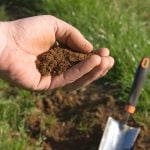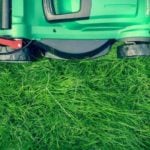
There are some basic things you should do in the spring to get your lawn off and running in Trenton, like cleaning up winter debris, prepping your lawn equipment, applying weed killer, and fertilizing.
Giving your lawn the right TLC coming out of its winter slumber will ensure it gets a fast start, looks great, and stays healthy through the long growing months and deep into the fall.
Key Takeaways
Get your equipment ready: Sharpen your mower blades, load the string trimmer, inspect tools for damage, and so forth.
Apply herbicide in March: If your lawn is prone to weeds, apply a pre-emergent herbicide in early to mid-March. Use a post-emergent herbicide or hand-pull your weeds once they emerge.
Fertilize: Mid-March is the best time. A soil test will tell you what nutrients your lawn needs.
Mow tall: Start mowing once your grass is at least 3.75 inches tall. Never mow your grass shorter than 2 inches tall, and never mow more than one-third of your grass at a time.
Get Your Equipment Ready

You don’t want to start off your lawn care routine with faulty equipment. This can damage your lawn and even pose some safety risks. So, the first job on your spring to-do list is to pull out all your equipment and check its state.
- Sharpen your mower and shear blades
- Check the condition of your mower’s spark plug
- Check if you need to change your mower’s oil filter
- Inspect tools for damage or rust
- Refill the line in your weed eater
- Test your electric tools’ batteries’ charge
- Pick up gas for gas-powered tools
Get your equipment ready early in the spring, before you do anything else. Here are some guides you may find helpful:
- How to Sharpen Lawn Mower Blades
- How to Change Spark Plugs on a Lawn Mower
- How to Change the Oil in a Lawn Mower in 9 Steps
- How to String a Weed Eater
Clean Up Your Yard

It’s time for a good cleanup. Winter snowstorms and wind can dump leaves, branches, and other debris, which can smother parts of your lawn, keeping it from getting sunlight, water, and nutrients. Get out your rake and clear away all the debris so grass can breathe.
You want to make sure that all the snow is melted before you start cleaning up, specifically raking. In Trenton, it may snow up to the end of April. Typically, it stops snowing by mid-April.
Attack Weeds Early
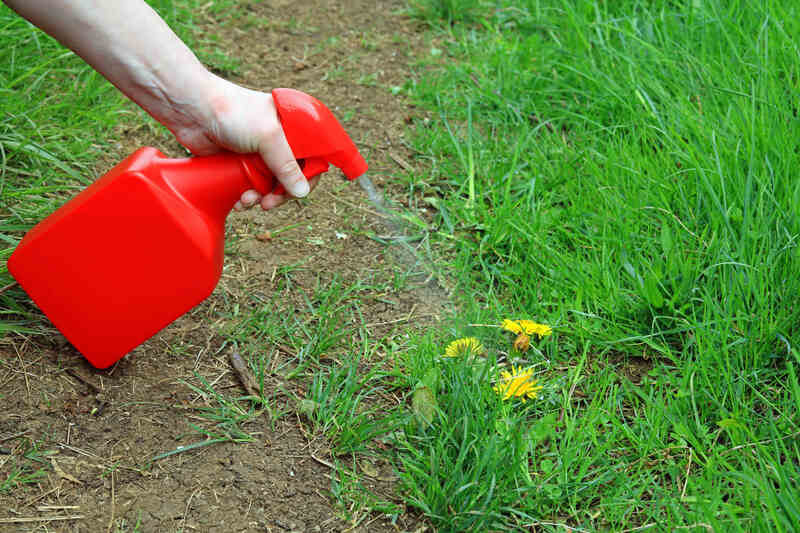
Weeds attack poorly established and badly maintained lawns. But you may get weeds even if you take exemplary care of your lawn.
If your weed problem is minor, you may be able to hand-pull your weeds. This is a chemical-free, effective method. But if your lawn tends to have more severe weed problems, consider using herbicides.
You can prevent grassy weeds like crabgrass by using pre-emergent herbicides before they get a chance to germinate in the spring. Homeowners most commonly use trifluralin, like Preen. You can see more recommendations in our pre-emergent herbicide product guide.
If you skip this step and weeds emerge, you can stop them with a post-emergent herbicide, like the common fluazifop. You can also use glyphosate in ornamental flowerbeds. However, it can’t touch the foliage or bark of ornamental species. You need expertise to achieve satisfactory results with post-emergent herbicides. Work quickly, as soon as you see the weeds emerge. Check out our article reviewing post-emergent herbicides for product recommendations.
You may not need to apply herbicides every season or to your entire lawn. You can spot-treat the affected areas instead.
Here’s what to remember if you want to use herbicides:
- Identify the weeds.
- Use the right pre-emergent or post-emergent herbicide.
- Follow the herbicides’ instructions on their labels.
Some of Trenton’s common weeds are:
- Crabgrass
- Goosegrass
- Ground ivy
The best time to apply pre-emergent herbicides is early to mid-March.
Test Your Soil

You can’t fertilize unless you know your soil’s needs. Thus, you need a soil test every season to know how you can help your lawn flourish. Rutgers Soil Testing Laboratory can help you test your lawn. The test pricing ranges between $20 and $90, depending on how much information you need.
Alternatively, you can buy a DIY soil testing kit, which will give you limited information.
Depending on which soil test you get, it can reveal things like:
- Nutrient levels
- pH
- Soluble salt level
- Organic matter content
- Soil textural class
- Gravel content
- Percentages of sand, silt, and clay
- Recommendations
You want to test your soil before you fertilize, so in early to mid-March.
Fertilize as Needed
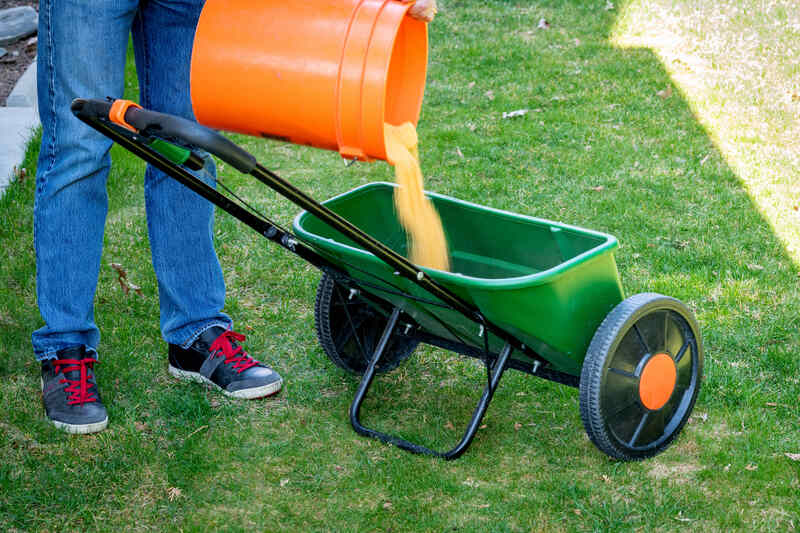
Grasses and plants need nutrients, and sometimes, your soil may have deficiencies. Fine turf with bare patches is likely malnourished. As mentioned above, you need to test your soil to find out if and how much you should fertilize.
Here are typical Trenton fertilizer applications:
| Intensity | Application |
| Low-maintenance | 0 to 2 pounds of N per year per 1000 square feet, applied 0 to 2 times per season |
| Medium-maintenance | 2 to 4 pounds of N per season per 1000 square feet, applied 2 to 3 times per season |
| High-maintenance | 3 to 5 pounds of N per season per 1000 square feet, applied 3 to 6 times per season |
If you need to fertilize, be careful to follow the instructions on the packaging. Overfertilizing can damage your plants and contaminate the surroundings. If your grass grows so fast that you need to mow it all the time and is very dark green in color, you may be overdoing it with fertilizer.
Wait at least a week after using herbicide and only then fertilize. Don’t fertilize in late winter to early spring, when leaching is most likely to occur. By local law, you can start fertilizng in March 1st (until November 15th). If you fertilized late in the season, ensure you wait until late spring to fertilize again. Or, if your grass is healthy, skip the spring fertilizer altogether.
Mow Your Lawn
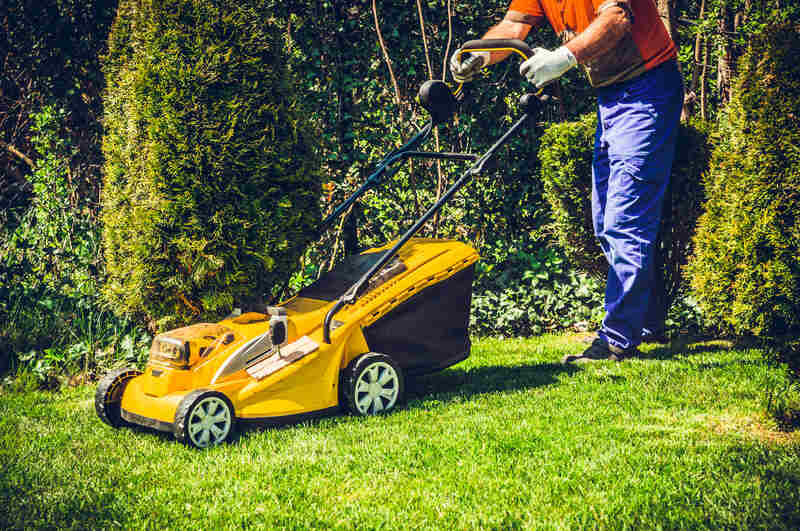
There’s no set time when you have to start mowing, but the best height for most Trenton lawns is between 2.5 and 3.5 inches, and never below 2 inches. You should never mow more than one-third of your total grass length. Therefore, wait until your grass is at least 3.75 inches tall before you start mowing. Mowing once a week during the growing season should be enough. However, if you want to cut your grass shorter than 2.5 inches, you’ll need to mow more frequently.
Keep sharp blades to avoid damaging the turf or worsening turf diseases you may not be aware of. Be sure to keep your grass clippings on your lawn to provide it with a healthy snack. To take an extra step, get a mulching lawn mower to shred the grass blades into small pieces.
Don’t Water Your Lawn (Unless You Really Want To)
Trenton’s droughts are typically short, and local grasses can survive them. For a low-maintenance lawn, don’t irrigate at all. This will allow you to also use less fertilizer and keep your grass taller.
If you want to irrigate, ensure you only start once your grass shows signs of dryness. Those include a blue-gray color, slow growth, and visible footprints. They might occur around late spring. The best time to water your lawn is late night to early morning. Avoid midday, which may evaporate the water, and early evening, which may lead to lawn diseases.
FAQ
What’s the best grass for Trenton?
The best grasses for Trenton are cool-season grasses, specifically Kentucky bluegrass, fine fescue, and perennial ryegrass. To see why these grasses are well-suited, check out our article on the best New Jersey grass types.
What’s the best grass for shady lawns?
Fine fescue grows well in Trenton and works well on shady lawns.
How do I prevent diseases in my lawn?
Keep a healthy lawn without excess moisture. Don’t water your lawn in the early evening. Treat diseases immediately, and if you face a recurrent lawn disease problem, apply fungicide preventively when the temperature is between 60 and 80 degrees. Ensure to use it according to the instructions on its label.
Read more in our lawn disease control in Trenton, NJ article.
What lawn care should I do in the fall in Trenton?
Dethatching and aeration are best left to early fall when it works best with the weather. You might also want to fertilize if you need to. Finally, don’t forget to winterize your lawn.
What plants grow well in New Jersey?
There are a number of annuals and perennials you can plant in New Jersey. Some examples are the spurred butterfly pea, the tickseed sunflower, and the field thistle.
Pros Do It Better
Perhaps you’d rather bike around the Delaware River or grab a pork roll sandwich with loved ones than take care of your lawn all spring. No worries; Lawnstarter’s lawn care pros are here to help. Get an instant quote.
Main Photo Credit: Famartin at English Wikipedia / Wikimedia Commons / CC BY 3.0




